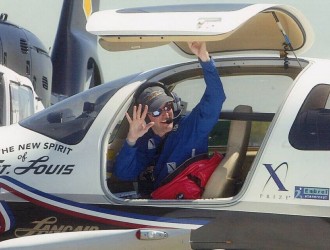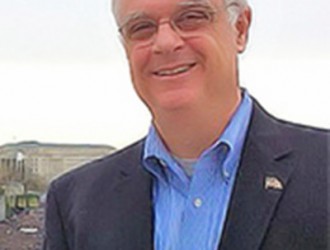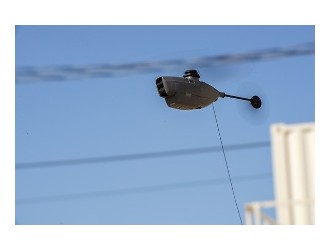Regional airlines that feed the nation's biggest carriers are boosting starting wages to fight a pilot shortage, hoping to encourage aspiring aviators to endure what has become lengthier training.
Regional carriers are vital to the U.S. travel network, operating 44% of passenger flights in 2015 and providing the only flights to 65% of U.S. airports with scheduled service. They typically supply their own crews and planes, while big airlines set schedules, sell tickets and buy the fuel.
New wage scales introduced in recent months increase pay for some of their first-year aviators from around US$20,000 to upward of US$50,000 including bonuses, per-diem payments and training stipends.
"The marketplace for pilots is pretty tight right now," said Capt. Tim Canoll, president of the largest pilot unio, Air Line Pilots Association. "What we're seeing is the operation of supply and demand economics."
Pilots have long accepted what they call "food-stamp wages" for a foothold in a passion-driven industry and a shot at six-figure salaries at major carriers later in their careers. Often loaded with debt, new pilots make do while they wait to ascend the pay scale, hoping to quickly upgrade to captain, a rank that confers higher wages, even at regional carriers.
Congress put a kink in the supply chain in 2013 with a law mandating that most aspiring pilots fly 1,500 hours before being hired by a regional carrier, up from as few as 250 hours. That added years and tens of thousands of dollars to the investment pilots must make in training and working as flight instructors before moving up to fly commercial airliners.
The pilot rosters of major airlines are also being squeezed by a wave of retirements as aviators turn 65, spurring larger carriers to more aggressively recruit among regional partners. The bottleneck will leave the U.S. with a deficit of nearly 14,500 pilots in the next decade, according to the University of North Dakota, home to a premier aviation program.
"I wouldn't say we can go out and hire as many pilots as we want," said Ryan Gumm, chief executive of Endeavor Air, a wholly owned regional unit of Delta Air Lines Inc. Last year Endeavor raised its starting wage to US$30 an hour from US$25. It now offers a US$20,000 annual retention reward, boosting it to US$23,000 annually thereafter.
Some regional carriers were so short on pilots they weren't able to fulfill schedules set by their major airline clients, leading to litigation. One, Republic Airways Holdings Inc., is reorganizing in bankruptcy. Carriers have pulled out of some marginal routes, cutting off access to smaller cities.
ExpressJet Airlines, a unit of SkyWest Inc., in February raised its starting pilots' pay to as much as US$40 an hour from a ceiling of US$27. The company also raised the number of guaranteed monthly hours a pilot will be paid by 10 to 75. ExpressJet said it has attracted more candidates since compensation rose.
In September, three regional carriers wholly owned by American Airlines Group Inc. temporarily raised first-year pilots' hourly pay. Subsidiary carriers often find it easier to do so because parent companies help cover costs, and don't expect their regional units to build profit margins into their contracts.
The more numerous independents don't have that luxury or formal arrangements for their pilots to be promoted into major carriers. Jonathan Ornstein, chief executive of Mesa Airlines Inc., keeps overhead low and hustles for added work in order to quicken the promotions of first officers to captain, which raises pay more quickly and is a recruitment lure to new pilots.
Jeff Mabry joined American's subsidiary PSA Airlines in 2015 after six years amassing the necessary 1,500 hours of experience. He earned about US$22,000 annually.
Now that PSA has raised hourly pay to US$38.50 and offered a US$20,000 retention bonus, Mr. Mabry said it's "a great feeling to finally be paid a comfortable living."
based in Charlotte, N.C., the 26-year-old jet pilot doesn't think airlines will be in a position to backtrack on higher pay anytime soon. "By 2018, it will probably be even more competitive to attract qualified pilots," he said.






